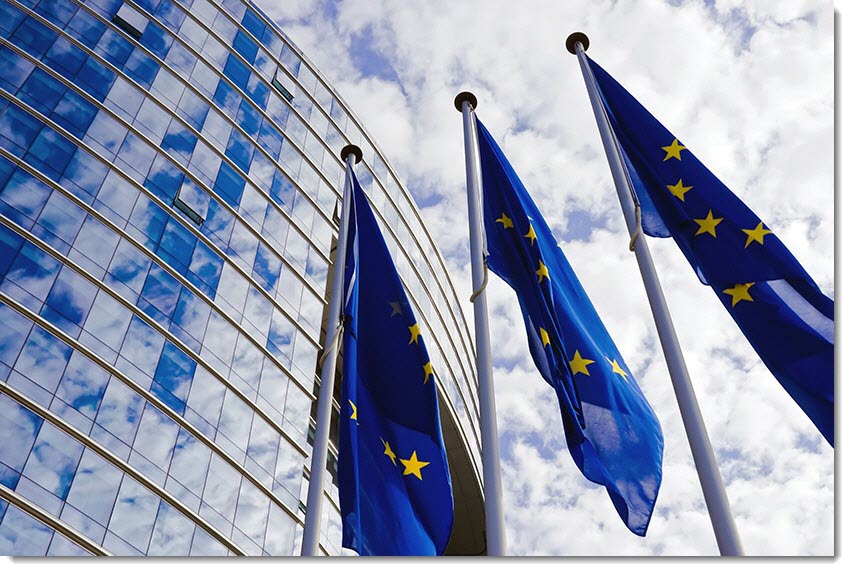
19/02/2024
EU Insight, 16 February 2024
Brussels, 16 February 2024
DEAL TO REVIEW THE EU’S FISCAL RULES
The Council and European Parliament reached agreement to reform the EU’s fiscal rules. Known as the EU’s economic governance framework, the rules aim to coordinate Member States’ fiscal policies and ensure they are sustainable in the long term. Overall, the revision sets debt ratios and deficit reduction targets in a gradual and sustained way while aiming to protect reforms and investments in strategic areas such as the digital, green, and social transitions. Moreover, the agreement leaves room for counter-cyclical policies aiming to address macroeconomic imbalances. Lastly, the revision requires Member States to submit national medium-term fiscal structural plans, which should follow a reference trajectory to be set by the Commission.
EUROPEAN COMMISSION RELEASES NEW FORECAST ON THE UNION’S ECONOMY
The European Commission published its Interim Economic Forecast for Winter 2024, assessing the EU’s economic growth. For context, the Commission issues two comprehensive economic forecasts (in spring and autumn) and two interim forecasts (winter and summer) each year. The recently published forecast finds that the EU entered 2024 on a weaker footing than expected, revising growth projections down, compared to the Autumn Forecast, to 0.9% (from 1.3%) and 0.8% (from 1.2%) respectively in the EU and the Euro area. On a more positive note, the Commission expects inflation to slow down faster than projected in the autumn and expects economic activity to accelerate in 2024.
COUNCIL CLARIFIES OBLIGATIONS FOR HOLDERS OF FROZEN RUSSIAN ASSETS
The Council endorsed a decision clarifying the obligations of Central Securities Depositories holding assets and reserves of Russia’s Central Bank. Concretely, depositories holding more than €1 million in Russian assets would have to maintain revenues from those assets separate from the rest of their holdings. Additionally, the entities shall be prohibited from disposing of the ensuing net profits. The Council’s decision follows from and clarifies the Russian assets’ freeze, imposed in February 2022, and aligns with broader G7 policies. Notably, the decision could serve as a basis for a potential future framework to use revenues from frozen Russian assets to help Ukraine’s reconstruction.
DEAL ON STRICTER MEASURES TO CURB SHIPPING POLLUTION
The European Parliament and Council reached an agreement to strengthen rules and their enforcement on shipping pollution. Concretely, the initiative aims to expand an existing ban on ship discharge, to also include sewage and garbage alongside existing prohibitions on oil spills. The new rules align with the International Convention for the Prevention of Pollution from Ships. Additionally, the revised rules introduce dissuasive fines for violating entities and aim to enhance communication between EU countries and the Commission. Lastly, the agreement requires the Commission to review the rules after five years, which could include plastic litter, the loss of containers and plastic pellet spills into the scope.
PARLIAMENT ADOPTS POSITION TO REGULATE GREEN MARKETING CLAIMS
The European Parliament’s adopted its position on new rules aiming to limit corporate greenwashing. Known as the Green Claims Directive, the initiative aims to prevent companies making baseless “green” marketing claims. As such, the rules would dictate what kind of information companies should provide to justify their marketing claims when these are related to sustainability factors, including when they refer to carbon offsets. In relation, the initiative creates a framework and specific deadlines for evidence checks and claims to be approved and imposes fines of up to 4% annual turnover for infractions.
COMING UP NEXT WEEK
- 19 February: Foreign Affairs Council. On the agenda: Situation in the Middle East, Russian aggression against Ukraine, The Sahel, Current Affairs
- 19 – 20 February: Informal meeting of Tourism Ministers. On the Agenda: Digital and sustainable transition pathway for tourism.
- 20 February: EU-Georgia Association Council. On the agenda: EU accession path, cooperation, reforms, and peaceful conflict resolution.
- 20 February: General Affairs Council. On the agenda: Preparation for the European Council of March 21 and 22, Rule of law in Poland: Article 7(1) TEU.
- 21 February: College of Commissioners. On the agenda: Connectivity package on digital networks and infrastructure
- 21 February: European Central Bank Governing Council. On the agenda: Non-monetary policy meeting in Frankfurt.
- 22 – 24 February: Informal Economic and financial affairs Council. On the agenda: EU Competitiveness, the future of the Capital Markets Union
- 23 February: Eurogroup. On the agenda: the future of European capital and financial markets, and macroeconomic developments and prospects.
Karl Isaksson, Managing Partner Brussels, Kreab
_________________________________________________________
Kreab • Tel: +32 2 737 6900 • karl.isaksson@kreab.com • www.kreab.com/brussels • Twitter: @KreabEU.
